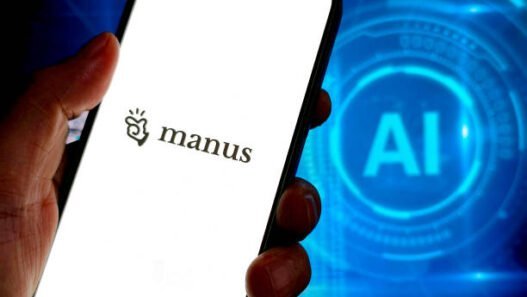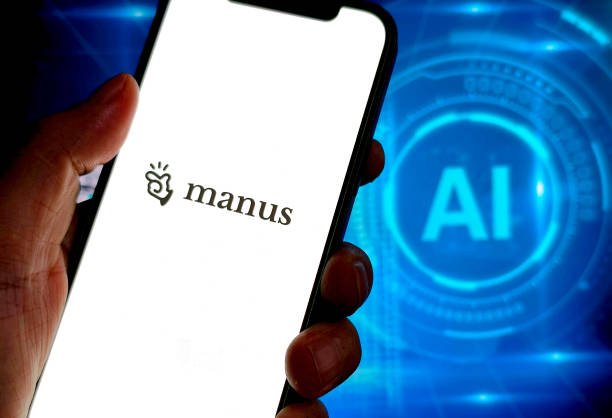TLDR: Manus AI is a new autonomous AI agent from China that can independently think, plan, and act, moving beyond the capabilities of traditional chatbots. This development is seen as a significant step towards truly autonomous AI with the potential to revolutionise various industries, but it also raises crucial ethical, security, and governance considerations. Some view it as a potential “wakeup call” for Western tech companies.
The world of artificial intelligence is rapidly evolving, moving beyond simple conversational chatbots towards intelligent entities capable of independent action. At the forefront of this transformation is Manus AI, an autonomous agent emerging from China that has ignited considerable buzz and debate within the AI community. Unlike its predecessors that require human intervention at key stages, Manus can think, plan, and act on its own. This groundbreaking development has been hailed by some as an artificial intelligence tipping point, while others express serious concerns regarding governance, security, and control.
Manus AI represents a significant leap towards truly autonomous AI, offering a glimpse into a future where AI doesn’t just talk but acts, while also raising important questions about ethics, security, and the future of work.
From Chatting to Acting: Understanding Manus AI
Manus AI distinguishes itself from traditional chatbots by its ability to autonomously execute complex, multi-step tasks. While chatbots like ChatGPT primarily respond to prompts, Manus can independently plan, execute, and adapt its approach to achieve a given goal. This represents a shift from reactive AI to proactive AI.
Manus is described as a general AI agent, indicating its versatility and potential to handle a wide array of tasks across different domains without requiring frequent, step-by-step instructions. This is achieved through its multi-agent architecture, where a central “executor” coordinates with specialised sub-agents for planning, knowledge retrieval, and code generation. Manus is currently built using the “AI bones” of Anthropic’s Claude 3.5 Sonnet and updated versions of Alibaba’s Qwen models. It also integrates with an assortment of 29 other tools and open-source software, enabling it to:
- Surf the web
- Interact with APIs
- Run scripts
- Write software on its own
A notable feature of Manus is its “Manus’s Computer” interface. This side panel provides users with real-time transparency into the agent’s decision-making process, showing the steps it takes, such as opening browser tabs, filling out forms, and navigating websites independently. Users can even replay past sessions to observe how Manus tackled a project, aiding in debugging, review, and training.
Unpacking the Potential: Capabilities and Applications
Manus AI boasts a range of capabilities demonstrated through various examples. These include:

- Creating functional websites from simple prompts
- Planning detailed travel itineraries, considering various factors
- Conducting in-depth stock market analysis and generating insightful dashboards
- Screening and evaluating job resumes, providing optimised hiring decisions
- Generating research papers and designing marketing campaigns
The potential impact of autonomous agents like Manus extends across numerous industries. It could revolutionise business process automation by reducing manual workloads, accelerate data analysis, streamline software development, and transform content creation. Reports indicate that Manus has achieved state-of-the-art performance in benchmarks like GAIA, outperforming leading AI models in real-world problem-solving.
Considering the Implications: Ethical Considerations and Challenges
Granting AI systems the ability to make decisions and take actions independently raises significant ethical concerns. The more autonomous AI becomes, the more developers and ethicists like Margaret Mitchell caution about potential dangers to humans and society. Concerns include:
- Diminished human oversight
- Increased susceptibility to manipulation
- Potential for financial fraud and identity theft
- Moral unaccountability when an AI performs contrary to its intended function
Security and governance are also critical considerations. Experts worry about potential security vulnerabilities, the risk of data poisoning, and the attractiveness of autonomous AI as a target for bad actors. The lack of clear international AI regulation further complicates matters, with varying approaches in different regions.
Early observations from users have revealed technical glitches, including system crashes and infinite feedback loops. Manus can also be slower than traditional chatbots in providing responses due to its deeper research process. Currently, access to Manus is limited to an invite-only test stage, highlighting that the technology is still in its early stages of development and refinement.
Comparing Manus AI to its Competitors
While ChatGPT excels at quick answers and conversational tasks, Manus aims to perform actions autonomously, going beyond simply generating text. In comparison to DeepSeek, which gained recognition for its powerful and cost-effective reasoning models, Manus focuses on autonomous task execution through its multi-agent architecture. While some reports suggest Manus outperforms OpenAI’s Deep Research on certain benchmarks, it currently faces challenges with speed and reliability compared to established chatbots. The multi-agent approach distinguishes Manus from single large language model-based systems like early versions of ChatGPT and Google’s Gemini.

Global Implications and the Response from the West
The emergence of Manus also has global implications, particularly for the United States and other Western tech companies. Some in Silicon Valley fear that China’s aggressive push into autonomous systems could give it a first-mover advantage in critical sectors. Manus challenges the assumption that whoever builds the most sophisticated chatbot controls the future of AI, shifting the focus towards self-directed action. This development serves as a “wakeup call” to US tech companies.
A Glimpse into the Autonomous Future
Manus AI undeniably represents a notable step in the evolution of AI towards greater autonomy and real-world application. Its ability to independently plan, execute, and learn signifies a departure from traditional AI assistants. While offering immense potential for increased productivity and automation across various industries, Manus also brings forth critical challenges concerning ethics, security, and governance that require careful consideration and the development of appropriate safeguards.
As this field continues to advance, the development and deployment of autonomous AI agents like Manus will necessitate responsible innovation and a global conversation to ensure their alignment with human ethics and societal well-being.
Sources: Manus AI Website.




















